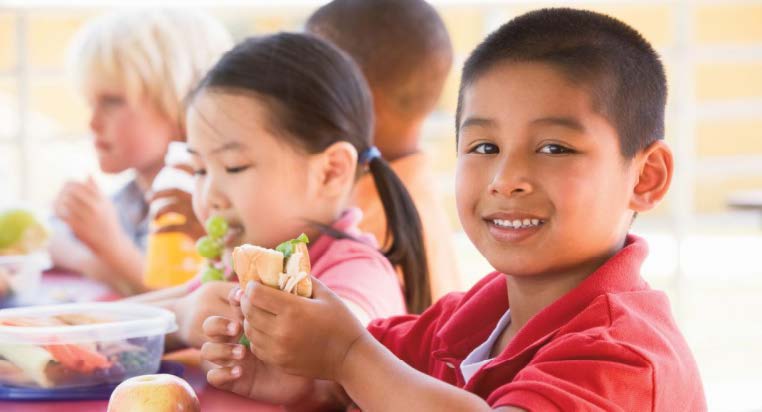
special needs who may be more likely to have weight problems, and there are ways to make activity accessible to them. Families can help support their children with disabilities in staying healthy by reducing the amount of “screen time” (TV-watching and computer game-playing) and increasing the amount of time their children and family are engaged in physical activity, whether it’s walking, swimming, or playing sports. In addition to engaging in physical activities at YM/YWCAs (see ymca.net diversity-inclusion/ for information on their efforts to support people with disabilities), opportunities for integrated sports with peer buddies include Little League Challenger Division ( littleleague.org/media challenger.htm), Miracle League ( the miracleleague.net/find-a-miracle-league), Special Olympics ( special olympics.org/Common/Special_Olympics_Pr ogram_Locator.aspx), and even accessible playgrounds ( accessibleplayground. net/playground-directory/.) Good nutrition is also critical for children with special healthcare needs, but it can be made more difficult because CSHCN are more likely to have allergies, health conditions that restrict what they can eat, and disability—related aversions to or preferences for certain foods that make it harder for parents to feed their children a healthy diet and limit unhealthy foods. FQHCs as well as other primary care providers can help by sharing nutrition information with families and talking about how to address diet restrictions or preferences in the most effective ways. Find out more about FQHCs at fqhc.org/what-is-an-fqhc. There are many ways in which parents and family organizations can address nutrition and activity for children with disabilities to reach their best potential.
ABOUT THE AUTHORS:
All of the authors are parents of children with special needs. Brenda L. Figueroa, in addition to being the Director of the Empowering Parents to Address and Prevent Obesity in Children with Special Healthcare Needs Project at the Statewide Parent Advocacy Network (SPAN), is the Program Coordinator for NJ Statewide Parent to Parent and the Northwest Parent Group Specialist on SPAN’s START Project. Fanny Ochoa is a Bilingual Trainer/Support Specialist on the obesity project and also the Northeast Regional Associate for NJ Statewide Parent to Parent. Michele Tyler is a Trainer/Support Specialist on the obesity project and is also the START (Statewide Technical Assistance Resource Team) Parent Group Specialist-Burlington/Ocean and Family Resource Specialist Mercer. Lauren Agoratus, M.A. serves as the Coordinator for Family Voices-NJ and as the central/southern coordinator in her state’s Familyto-Family Health Information Center, both housed at the Statewide Parent Advocacy Network (SPAN) at spanadvocacy.org.
References
1. kidsdata.org/topic/489/overweight-obese-special- needs-status/table#fmt=643&loc=1,2&tf=77&ch=172,173